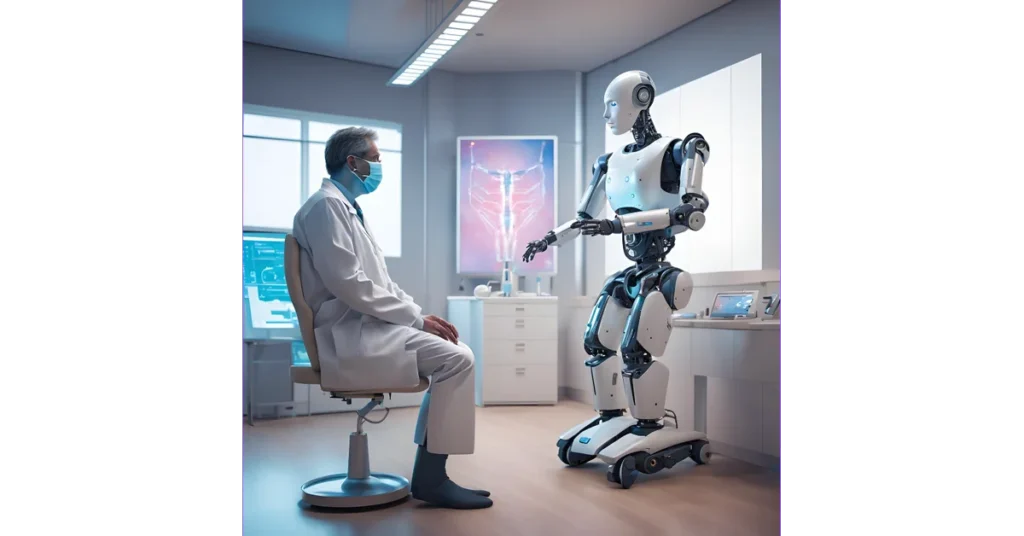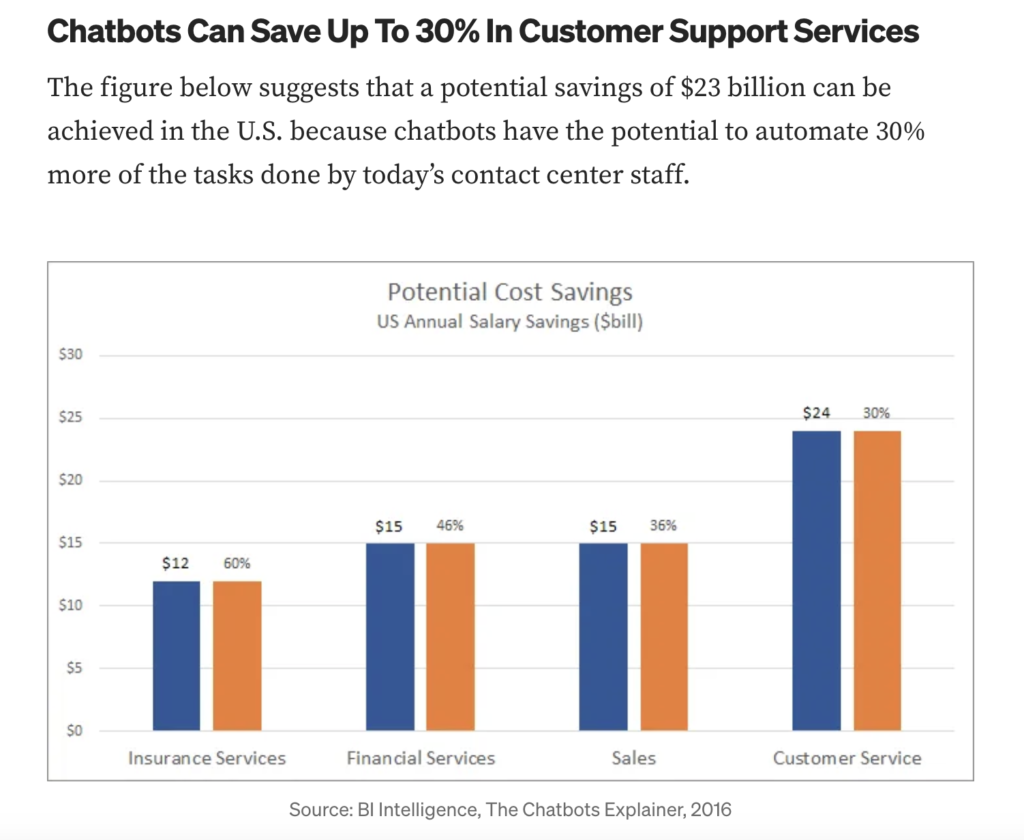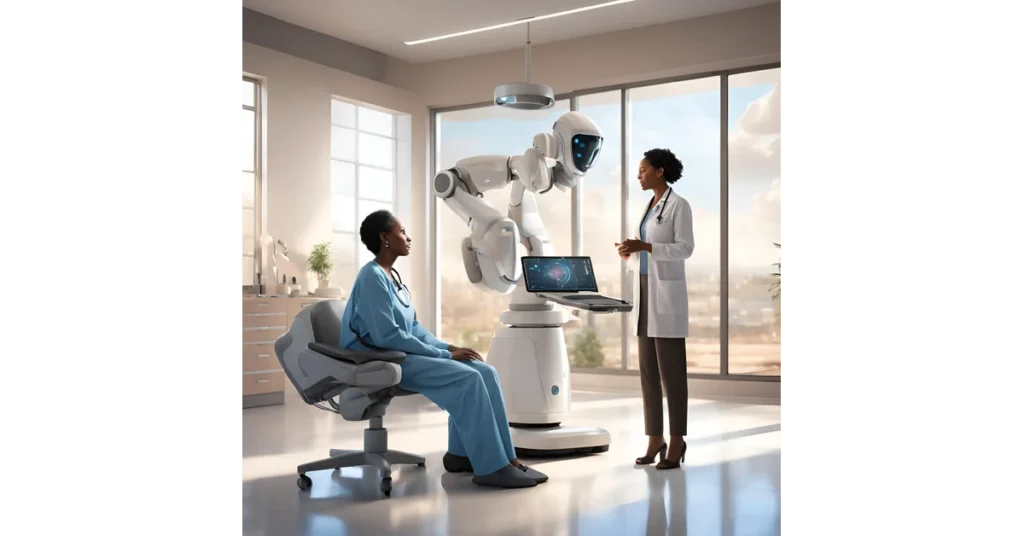Introduction
The use of chatbots in healthcare has rapidly grown, reshaping the way clinics and medical practices operate. From scheduling appointments to providing patients with essential information, chatbots have become an indispensable tool in modern healthcare.
They offer clinics a way to improve efficiency, enhance patient satisfaction, and reduce the workload on staff, all while maintaining a high standard of care.
In this blog post, we will explore the benefits of using chatbots in healthcare and highlight the best use cases for clinics. By the end of this article, you’ll have a clear understanding of how chatbots can transform your clinic’s operations and patient interactions.
Check next the differences between an AI agent vs chatbot vs virtual assistant.
Here you can find comprehensive reviews and comparisons of the top chatbot builders on the market. what is your favorite?
Key Takeaways
- Chatbots in healthcare can significantly reduce administrative burdens.
- They improve patient engagement by providing instant responses.
- Chatbots enhance the efficiency of appointment scheduling and reminders.
- They can support patient education and answer common health-related queries.
- Implementing chatbots in healthcare can lead to cost savings and better resource allocation.
Table of Contents
The Benefits of Chatbots in Healthcare
Enhanced Patient Engagement
One of the primary benefits of chatbots in healthcare is their ability to engage patients effectively. By providing instant, 24/7 responses to patient inquiries, chatbots ensure that patients feel heard and supported at all times.
This immediate engagement can lead to increased patient satisfaction and loyalty, as patients appreciate the prompt assistance they receive.
Chatbots can also follow up with patients after appointments, sending reminders about medication or upcoming visits. This ongoing interaction helps patients stay on track with their treatment plans, leading to better health outcomes.
If you want more info, check this post about 12 Best Chatbots For Customer Service Can Boost Productivity By 30%.
Streamlined Appointment Scheduling
Appointment scheduling is one of the most time-consuming tasks for clinic staff. Chatbots can automate this process, allowing patients to book, reschedule, or cancel appointments without needing to speak with a staff member.
By integrating with the clinic’s scheduling system, chatbots can provide real-time availability and even suggest alternative times if a patient’s preferred slot is unavailable.
This automation not only frees up staff time but also reduces the likelihood of errors in the scheduling process. Patients appreciate the convenience of being able to manage their appointments at any time, without the need to call during office hours.

Reduced Administrative Workload
Administrative tasks such as answering phone calls, processing forms, and handling routine inquiries can be overwhelming for clinic staff. Chatbots in healthcare can take on many of these tasks, allowing staff to focus on more complex and meaningful work.
For example, chatbots can guide patients through the process of filling out forms, ensuring that all necessary information is collected before an appointment. They can also answer frequently asked questions about clinic policies, services, and procedures, reducing the number of phone calls staff need to handle.
Improved Access to Information
Patients often have questions about their health, treatment options, or medications, and they want answers quickly. Chatbots in healthcare can provide patients with accurate, reliable information based on the clinic’s guidelines and resources.
This can include anything from explaining the side effects of a medication to providing instructions for post-operative care.
By making information easily accessible, chatbots empower patients to take a more active role in their healthcare. This can lead to better adherence to treatment plans and a greater understanding of one’s health.
Cost Savings for Clinics
Implementing chatbots in healthcare can lead to significant cost savings for clinics. By automating routine tasks and reducing the workload on staff, clinics can operate more efficiently and allocate resources more effectively.
This can result in lower operational costs and the ability to provide better care with the same or fewer resources.
Additionally, chatbots can help reduce the number of missed appointments, which can be costly for clinics. By sending automated reminders and allowing patients to easily reschedule, chatbots help ensure that appointment slots are filled, leading to more efficient use of clinic resources.

Source: Can Chatbots Help Reduce Customer Service Costs by 30% | Chatbot Magazine Medium
Best Use Cases for Chatbots in Healthcare Clinics
Appointment Reminders and Management
One of the most effective uses of chatbots in healthcare is managing appointments. Chatbots can send automatic reminders to patients about upcoming appointments, reducing the number of no-shows.
They can also handle cancellations and rescheduling, making the process seamless for both patients and clinic staff.
This use case not only improves patient attendance but also optimizes the clinic’s schedule, ensuring that time slots are used efficiently. Patients appreciate the convenience, and staff can focus on other important tasks.
Patient Triage and Symptom Checking
Chatbots can also be used for patient triage, helping to determine the urgency of a patient’s condition before they speak with a healthcare provider.
By asking a series of questions about the patient’s symptoms, chatbots can guide them on whether they should seek immediate medical attention, schedule an appointment, or manage their symptoms at home.
This functionality is particularly useful in clinics where resources are limited and waiting times can be long. By directing patients to the appropriate care level, chatbots help ensure that those who need immediate attention are prioritized.
Medication Management and Adherence
Another valuable use case for chatbots in healthcare is medication management. Chatbots can remind patients to take their medications at the prescribed times and provide information about the proper dosage and potential side effects.
They can also track adherence and alert healthcare providers if a patient consistently misses doses.
This can be particularly beneficial for patients with chronic conditions who need to follow a strict medication regimen. By improving adherence, chatbots help prevent complications and ensure that patients get the most benefit from their treatment.
Post-Operative Care and Follow-Up
Post-operative care is a critical phase of a patient’s recovery, and chatbots in healthcare can play a key role in this process.
Chatbots can provide patients with personalized instructions for their recovery, answer questions about what to expect, and remind them of follow-up appointments.
They can also monitor patients’ progress by asking questions about their pain levels, mobility, and other recovery indicators. If a chatbot detects any red flags, it can alert the healthcare provider to intervene promptly.

Patient Education and Support
Educating patients about their health conditions and treatment options is essential for achieving positive outcomes. Chatbots in healthcare can serve as an accessible resource for patients, offering educational content that is easy to understand and tailored to the patient’s needs.
Whether a patient needs information about managing a chronic condition, preparing for surgery, or understanding a new diagnosis, chatbots can provide relevant, accurate information.
This support helps patients feel more confident in managing their health and makes them more active participants in their care.
Collecting Patient Feedback
Finally, chatbots in healthcare can be used to collect feedback from patients after their visit. By sending a simple survey through the chatbot, clinics can gather valuable insights into patient satisfaction and areas for improvement.
This feedback is crucial for continually improving the quality of care and ensuring that patients have a positive experience at the clinic. Because chatbots make it easy for patients to provide feedback, clinics are more likely to receive responses and actionable data.
Mental Health Support
In the niche of mental health, chatbots can offer immediate support to patients experiencing anxiety, depression, or other mental health issues.
While they are not a replacement for therapy, chatbots can provide coping strategies and exercises that help patients manage their symptoms in real-time. This is particularly useful during after-hours or when immediate access to a therapist is not possible.
Virtual Health Assistants
Some chatbots in healthcare function as virtual health assistants, providing personalized health advice based on a patient’s medical history and current symptoms.
For example, a patient with diabetes could receive daily tips on managing their blood sugar levels, reminders to check their glucose, and advice on diet and exercise.
These chatbots act as a continuous support system, helping patients manage chronic conditions more effectively.

Emergency Response Systems
In emergency situations, chatbots can be integrated into emergency response systems to provide immediate instructions before medical help arrives.
For example, a chatbot could guide a bystander through performing CPR or instruct someone on how to stop bleeding while waiting for an ambulance. This real-time guidance can be lifesaving in critical moments.
Insurance and Billing Inquiries
Chatbots in healthcare can also assist with insurance and billing inquiries. Patients often have questions about their coverage, co-pays, or billing statements, which can be confusing and time-consuming for clinic staff to address.
A chatbot can provide quick answers to common questions, explain charges, and even assist with processing payments, making the entire experience smoother for patients.
Chronic Disease Management
Managing chronic diseases like diabetes, hypertension, and asthma requires ongoing monitoring and support. Chatbots can assist patients by providing daily reminders to take medication, log symptoms, or monitor vital signs.
They can also alert healthcare providers if a patient’s condition appears to be deteriorating, enabling timely interventions that could prevent complications.
Language Translation Services
For clinics serving a diverse patient population, chatbots can offer language translation services. This ensures that non-English-speaking patients receive the same level of care and information as English-speaking patients.
By breaking down language barriers, chatbots help clinics deliver inclusive healthcare that meets the needs of all patients.

Conclusion
Chatbots are changing healthcare for the better. These clever digital assistants are helping clinics in many ways.
By answering patient questions quickly and handling routine tasks, chatbots free up valuable time for healthcare staff. This allows clinics to run more smoothly and focus on what really matters – patient care.
Improved patient engagement is another key benefit. Chatbots provide instant access to information, helping patients feel more involved in their healthcare journey.
As technology advances, we can expect chatbots to play an even bigger role in healthcare. They’ll continue to create new opportunities for improving patient experiences and streamlining clinic operations.
If your clinic hasn’t explored chatbot technology yet, now might be the perfect time. Consider how these digital helpers could benefit your practice and your patients.
The future of healthcare is here, and chatbots are leading the way to more efficient, patient-centered care.
Here are other cool use cases for Chatbots you might want to explore:
- These 6 Best Chatbots For Twitch Are What You Need To Boost Your Stream in 2024.
FAQs
How do chatbots handle sensitive patient information?
Chatbots in healthcare are designed to comply with data privacy regulations like HIPAA. They use encryption and secure servers to protect patient information, ensuring that all communications are confidential.
Can chatbots replace human interaction in healthcare?
No, chatbots are not a replacement for human interaction. They are tools that enhance healthcare services by handling routine tasks and providing information. Human providers are still essential for diagnosing and treating patients.
What types of questions can healthcare chatbots answer?
Healthcare chatbots can answer a wide range of questions, including appointment scheduling, medication instructions, clinic policies, and general health information. They are programmed to provide accurate, up-to-date responses based on the clinic’s guidelines.
Are healthcare chatbots customizable for different clinics?
Yes, healthcare chatbots can be customized to meet the specific needs of different clinics. They can be tailored to reflect the clinic’s brand, services, and patient population, ensuring that they provide relevant and helpful information.
What is the cost of implementing a healthcare chatbot?
The cost of implementing a healthcare chatbot varies depending on the complexity of the chatbot and the features required. However, many clinics find that the investment pays off in terms of improved efficiency, patient satisfaction, and cost savings.
How do patients respond to interacting with chatbots?
Most patients appreciate the convenience and efficiency of interacting with chatbots. They value the ability to get quick answers to their questions and manage their appointments without waiting on hold or navigating phone menus.
Do you want to take your chatbot one step further. Send me a message on my LinkedIn and we can talk about setting your own Healthcare Chatbot.
Imagine a chatbot that books appointments, answers questions, and provides 24/7 support. We can work to make that happen!





